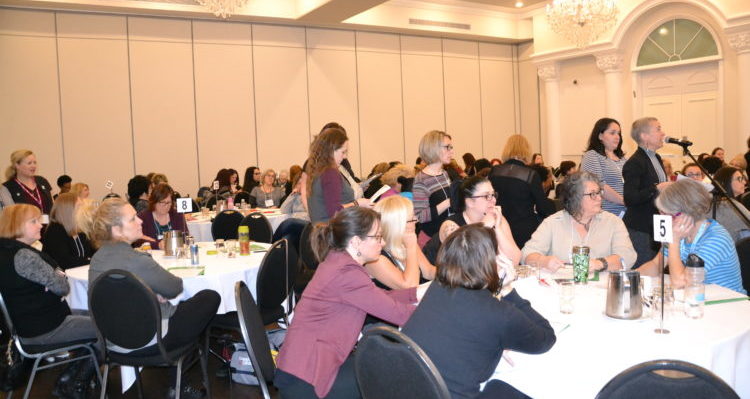
The mental load: an obstacle to getting involved?
The mental load is the invisible work that goes into organizing household and family tasks. It’s not the execution of the task itself but rather the thought process required to accomplish it, including planning visits to the doctor or registering children for school.
In general, women carry most of the mental load. Moreover, it becomes even heavier for women when they have their first child. At the Women’s Network’s interactive conference, the union reps had the opportunity to talk about the causes and effects of this problem, as well as possible solutions.
One observation was that society feeds a social construct that says a woman’s place is in the home and a man’s at work. This means women end up taking on the majority of household responsibility, which results in almost permanent stress, anxiety, the decision to work part-time or completely leave the labour market, which in turn affects their present and future financial independence.
The union reps came up with a possible solution to reduce women’s mental load. Their idea was to extend paternity leave, which would enable men to get involved in their child’s life earlier on and in a more sustainable way.
Does the mental load constitute an obstacle to women’s involvement in positions of power at the FIQ? Yes, but it is not the only obstacle. We understand that with the work overload, mandatory overtime and professional responsibility, healthcare professionals are less likely to get involved. We must therefore implement measures to encourage their involvement.